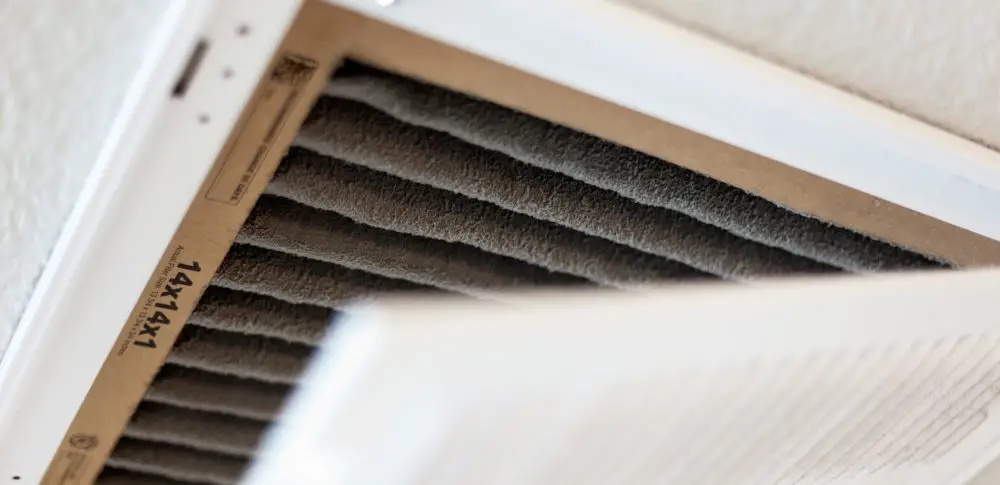Air conditioners are an essential part of keeping your home comfortable, but did you know that dirty AC filters can cause a range of health issues?
From allergies to respiratory problems, the dirt and dust in an air filter can have a serious impact on your well-being. Let’s explore what these effects are and how to prevent them.
Allergies and Respiratory Issues
Dirty air filters can be a breeding ground for allergens such as mold, dust mites, pollen, and pet dander. As these allergens are circulated through the air in your home, they can trigger asthma attacks or allergic reactions in those who suffer from them. In addition, particles from the filter can irritate the nose and throat, leading to coughing and sneezing. So, if you are thinking is your dirty ac filters making you sick, the answer will be yes in most cases.
Spread of Illnesses
A dirty filter also allows bacteria and viruses to be more easily spread throughout your home. These microorganisms can lead to illnesses such as colds or flu that can put you out of commission for days at a time. In addition, if someone in your home has a weakened immune system due to age or chronic illness, they may be more vulnerable to infection caused by contaminated filters.
Other Health Impacts
Finally, dirty AC filters can have other health implications as well. For example, they can increase indoor humidity levels which encourages the growth of mold and mildew. This mold can then aggravate allergies even further or cause respiratory infections like bronchitis or pneumonia. In addition, high levels of dust particles in the air could also lead to eye irritation or headaches due to prolonged exposure over time. If you are doubtful and can’t immediately check and change your air filters, there exist air purifying solutions that you can opt for for the general health and well-being of your own as well as your family.
Energy Efficiency Concerns Associated with Dirty AC Filters
Apart from the health issues that dirty air filters can lead to by polluting indoor air, AC filters are also bad for the efficiency and overall health of your air conditioners. Now, a broken air conditioner is always a bad omen for the environment thereby leading to overall much poorer air quality.
How Dirty AC Filters Affect Energy Efficiency
Dirty AC filters reduce energy efficiency by making the AC unit work harder to circulate air. The dirt and debris clogging the filters restrict the airflow, causing the system to consume more energy to cool the same amount of air. This results in higher energy bills and a shorter lifespan for the AC unit. Regularly replacing or cleaning the filters can improve energy efficiency and maintain the performance of the AC.
The Financial Impact of Dirty AC Filters
Dirty AC filters can have a significant financial impact in several ways. Firstly, it increases energy consumption as the clogged filters make the AC work harder to cool the same amount of air, leading to higher energy bills.
Secondly, a dirty filter can cause the AC unit to break down more frequently, leading to costly repairs. And lastly, a poorly maintained AC unit has a shorter lifespan, meaning that it will need to be replaced sooner, which can be a costly investment.
By regularly replacing or cleaning the AC filters, the efficiency of the AC unit can be maintained, reducing energy bills and avoiding expensive repairs or replacements.
Prevention and Maintenance of Clean AC Filters
Preventing and maintaining clean AC filters is crucial for the efficient and long-lasting operation of an air conditioning system.
How to Clean AC Filters
To clean AC filters, turn off the power to the unit, remove the filter, and wash it with mild soap and water. Allow the filter to air dry completely before reinstalling it. Some filters may be disposable and need to be replaced instead of cleaned.
How Often to Clean AC Filters
AC filters should be cleaned or replaced every 1-3 months as part of preventive maintenance, depending on usage and environmental factors such as pet dander or high levels of dust. Regularly checking the filters and cleaning or replacing them as needed can improve indoor air quality, and energy efficiency, and extend the lifespan of the AC unit.
Signs of AC Filters That Need Replacing
Signs that AC filters need replacing include reduced airflow, increased energy bills, and the filter appearing visibly dirty or clogged. If the filter is not cleaned or replaced when needed, it can lead to decreased efficiency and potential breakdowns of the AC unit.
Summing Up:
It’s clear that dirty air filters pose a real threat not only to your comfort level but also to your health. To avoid any potential problems associated with these contaminants, it’s important to change out the filter regularly. Usually, this change of air filters must happen once every three months so that clean air continues circulating through your home uninterrupted.
Doing so will help you breathe easier knowing that you’re breathing in healthy air. Also, your air conditioner will stay efficient helping you maintain the required temperature that too without breaking the bank. So, we recommend that don’t wait any longer and make sure you check those AC filters today.



